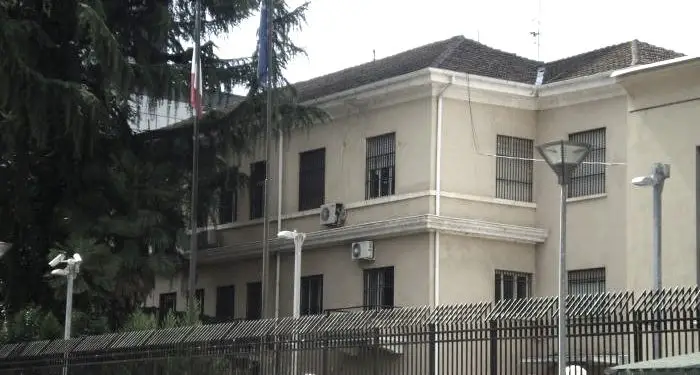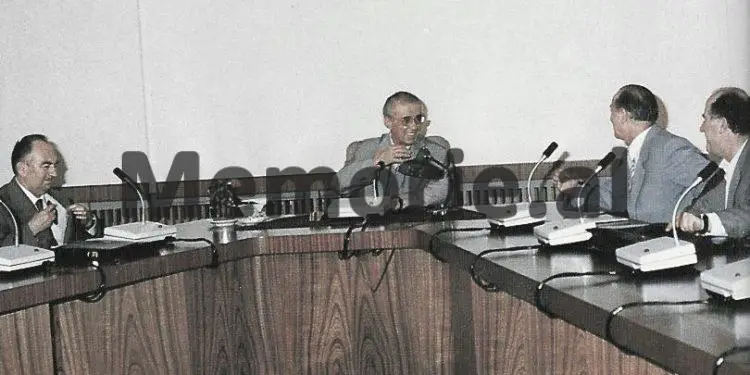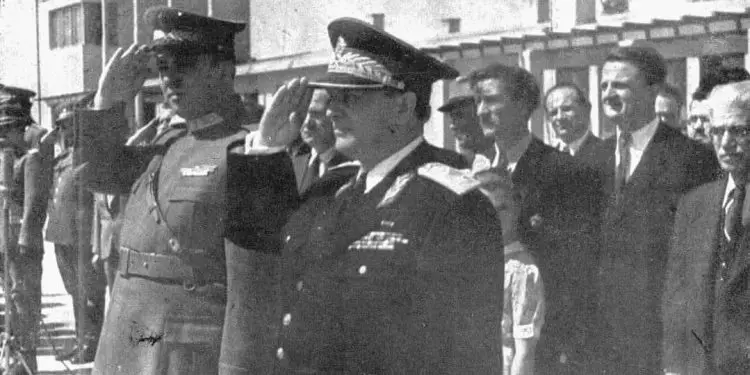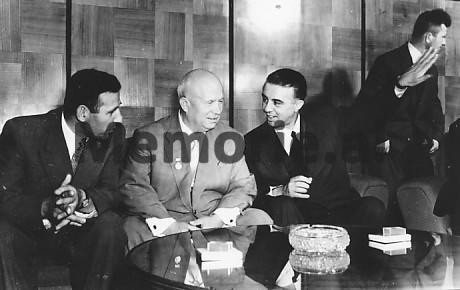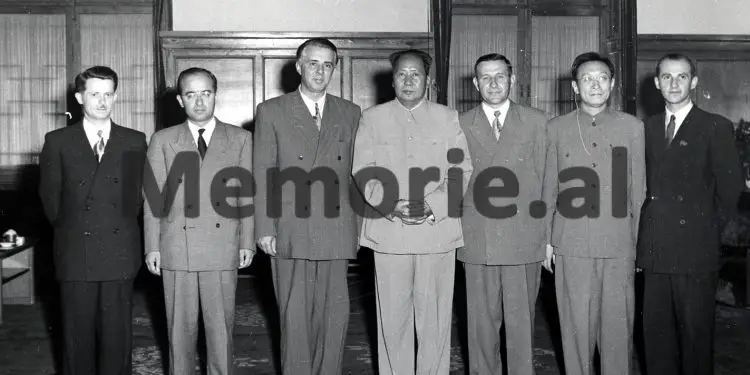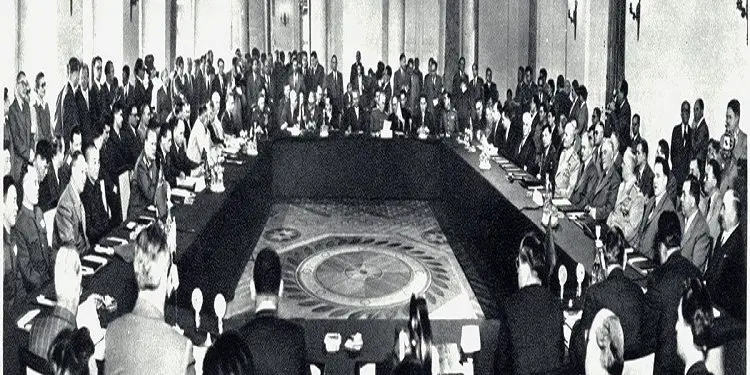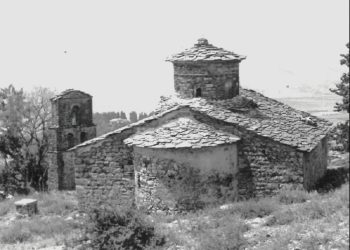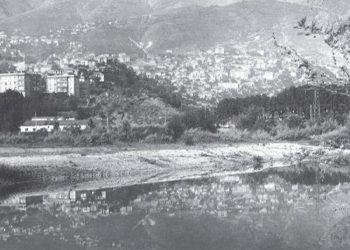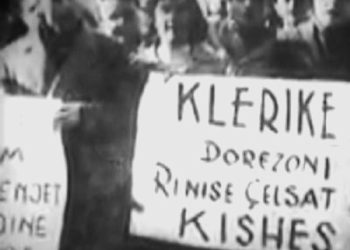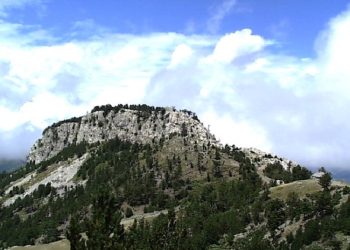By Roberto Ducci
Second part
Memorie.al / “The case of the invasion of Afghanistan, the most likely to be repeated in post-Hoxha Albania by the Soviet brothers”. Regardless of the course that the developments in Albania took after the death of Enver, the dilemmas of the Western chancelleries, regarding the unexpectedness of the post-Hoxha situation, have been among the most diverse. The memories of Roberto Ducci, the former Italian ambassador in Tirana in the early 80s, but not only, reveal part of the possible predictions. In the previous issue, we published the reflections of the diplomat of the neighboring country, on the expectations and confusion that the loss of the communist dictator would cause, starting from the political realities experienced by Tirana at that time and its role in the fragile balances of the region, but also beyond. Ambassador Ducci, expressing his belief that whoever will take the baton of Hoxha’s conductor, will be weaker than him for a long time and knowing that the USA has no reason to destabilize Albania, predicts a possible return to the former ally, the Soviet Union, and therefore a landing of Soviet troops in Albania. The following part of Ambassador Ducci’s memoirs talks about the expected effects after Albania’s possible meeting with the Warsaw Treaty and the new NATO agenda after that…! (Afrim Imaj)
-Memories of Roberto Ducci, former ambassador of Italy in Albania, in the 80s!-
Continues from last issue
With a plan to destabilize the population and political groups that would inherit power in Tirana after the death of Hoxha, the goals could be easily united. Some small factions, who refused to participate in power, could be encouraged to appeal to Moscow for fraternal help. Or, the ruling group itself could challenge the opponents, seeking the protection of “Big Brother” and thus continue to rule, in the name of Hoxha.
This second option would be better for Soviet planners. The most convincing scenario for the “Albania” operation must take into account the degree of military risk. Of course, not the danger that the invading army could be held thanks to the resistance of the Albanian patriots, but an even greater danger: that of the outbreak of a crisis of East-West proportions. People in the Kremlin are ready to take calculated risks: they correctly calculated that when the sclerotized Brezhnev gave the green light to the invasion of Afghanistan, there would be no response from the West, except in words.
Geography precluded military intervention of any kind from the West. But Albania is in the Mediterranean area, very close to NATO forces. For this reason, the risk assessment must account for the possibility of a military response from Italy, from Greece, from the US Sixth Fleet, or from NATO as a whole. What kind of reaction should the Kremlin expect from each of these?
Italy’s reaction to a surprise invasion of Albania by the Soviet Union would oscillate between anxiety and extreme concern in political circles, as well as the fearful indifference of the people. Italian leaders would find it difficult to work out a practical proposal to present to NATO allies. They would not be surprised at the possibility of demonstrations by the Communist Party, or by the trade unions: the prospect of Soviet forces stationed permanently a hundred miles off the coast of southern Italy was not pleasing to these organisations.
But, the people would be spiritually unprepared to face force with force, given that they had been kept in the dark about the danger of a confrontation with the USSR (Union of Soviet Socialist Republics) in the Balkans. For this reason, Rome would remain frozen, waiting for a leadership role from Washington and other allied capitals. The strategic position of Greece would change even more radically than that of Italy. The Greek government would be seriously shaken. Warsaw Pact pressure, long felt along Bulgaria’s borders, could now spread to Albania’s once peaceful borders.
At first, Athens would formulate an attitude of reconciliation with Belgrade and, while listening to rumblings that might come from Turkey, would probably advise prudence, trusting whispers that Soviet troops would withdraw as soon as they had fulfilled their fraternal duty or, once Moscow offered a non-aggression treaty, Soviet-Greek. I have mentioned the US Sixth Fleet because it is the bedrock of US power in the Mediterranean. Supported by NATO’s Mediterranean countries and supplied by their ports and airfields, the Sixth Fleet is an incredibly powerful war machine.
But if it could single-handedly support a military operation that would be substantially more significant and far more severe than the two operations it had carried out in recent years against Gaddafi’s Libya – that remains open to suspicion. Certainly one or two large aircraft carriers would take up a position in the Ionian Sea, or in the Gulf of Taranto; CAA planes, flying over the Adriatic, would be able to detect and provide data on the extent of Soviet penetration.
Could such a limited show of force discourage Moscow from completing the airborne landings and force it to withdraw its Antonov planes and paratroopers, as Khrushchev did when he called for the withdrawal of his ships, to because of Kennedy’s ultimatum? Perhaps the answer is; “no” and therefore, another step would have to be taken. Washington would take the problem to NATO’s lap.
Of course, NATO is a convenient cover for what is in reality a confrontation of the political will of several sovereign states. Past experience has shown that it is difficult for organizations like this to reach a collective decision that could spark a major war, if it is not a direct aggression, against one of its members. For many years, military advisers have urged the Atlantic Alliance to defend not only its member states, but also the Alliance’s vital interests, in areas outside NATO’s legal boundaries (boundaries that include North America, Western Europe, with the exception of neutral and non-aligned countries and the Mediterranean Basin, with the exception of the Near East and North Africa).
Nothing came of these proposals. The difficulties in defining interests and vital areas proved to be too great. In 1973, the allied European governments, except for Portugal, were reluctant to provide air bases and other installations for American forces engaged in saving the skin of Israel – and a few days later, that of Egypt. In this retrospect, the West’s lack of courage at the time of the Cuban expeditions to
Angola (1975) and Ethiopia (1978) proves the idiocy of its leaders, as well as their lack of political education. Most of them strangely ignored the fact that Luanda (Capital of Angola) and Addis Ababa (Capital of Ethiopia) are geographically located, as well as the fact that; the Cuban “liberators”; they made it impossible for the Angolans and Ethiopians; to seek the benevolence and help of the West.
It would have been difficult to convince the electorate of Copenhagen or Amsterdam to tolerate a military operation in those “distant countries, about which they knew nothing”! Although Albania and Tirana are much closer to, say, Norway than to the two African countries mentioned above, NATO’s northern members, among others, would likely adopt a harmonized position, but an attitude that would be anything, but still, no concrete action.
The debate at the Atlantic Council in Brussels could, therefore, end with words of moralizing or, tacitly, the burden would be placed on the United States – perhaps together with Italy – to act according to their opportunities, skills, judgment and authority best political solution, to achieve the removal of the Soviets from Albania. (The unpleasant precedent of Afghanistan should be kept in mind, but not taken as a model. The West had no opportunity to enter that region, while it is in close physical contact with the Balkans).
Thus, everything would be “left at the door” and it would be trusted to the skills and capacities of the American President, to make the Congress for himself, in the efforts to face the Soviets, with a reliable attitude that would signal, or….or…! Unfortunately, time would be too short, and the planners in Moscow—considering the limited choices open to the President—might well conclude that it was already too late to instruct the Sixth Fleet and the US Intervention Force. Quickly to land troops on the Albanian coast with the idea of securing, at least, some territorial hostages with the aim of preventing a complete invasion of the country by the Soviet army.
Such a pessimistic assessment, for our side, and another optimistic one, for the opposing side, would be excluded if the US government and NATO’s Supreme Headquarters had a ready political and military plan for a state of emergency, in order to manage a crisis of this type. In the West, currently the theoretical study of crisis management has advanced considerably.
There is full reason to hope that the correct application of this doctrine is available to manage the crises that may arise in some delicate sectors of the world. Furthermore, if it were known or believed that there was a contingency plan to deal with events such as the Albanian scenario, this would in itself be an act of deterrence or, at the very least, give them the Soviet leaders to understand the extent of the danger, to enter into doubts, to be influenced by them and then to restrain their hand.
Any conjecture and prediction could be laid out in two unknown and independent plans: When might the crisis begin? What will then be the overall ratio of forces in both camps, especially in the nuclear field? Let’s assume that no nuclear ultimatum is given to demand the withdrawal of Soviet forces; that the attacks in the Albanian territory were not attempted and carried out, when the circumstances were still favorable; that we did not shoot down any Soviet transport planes, to force Moscow to stop and reflect.
The West would still have other cards to play (a high degree of readiness would have been achieved, it would have sunk Soviet warships and transports, without any great risk of retaliation from the adversary; the idea of an operation next landing, it could also be developed in practice), etc. But the value of these cards would decrease with the passage of days. After a week or two, the Soviet order would have been installed in most of Albania.
The government of Tirana would solemnly thank Moscow for the fraternal assistance. “Proofs” of the imperialist conspiracy would be produced through the prisoners who had allegedly resulted from the “subversive commands”. The Security Council would vote to condemn the Soviet Union, but with a Soviet veto, the resolution would be considered invalid. Well-disposed or simply naive Western journalists would periodically spread news that Soviet troops would embark in Durrës to return home. Moscow’s official sources would occasionally promise the end of the state of occupation. Some military units would even gradually withdraw.
However, the air and naval bases would host Russian “advisors”; eventually US reconnaissance satellites would discover missile depots under construction in the Albanian hills. The Americans would protest strongly to Moscow. But this would answer that there is no mutual agreement, on limitations or restraints accepted by both sides, both on the combat use by the two blocs of intermediate-range nuclear missiles, as well as on the case of the deployment of short-range missiles short in Albania, which made it clear that it was done as a counterweight to the “Cruise” missiles in Sicily.
The profound change in the strategic situation in the Balkans and the Mediterranean would not stop with the deployment of short-range missiles, aimed mainly at Italy, Yugoslavia and Greece. There would be a number of political ramifications. After some time, the issue of Macedonia would be raised; incidents and riots would be encouraged in the Republic of Macedonia, followed by military maneuvers along the entire border of Yugoslavia, under the high command of the Warsaw Pact.
No concrete help could be seen from non-aligned countries or from NATO. There would be no difference, which formula would be adopted: an “independent” Macedonia, or a Yugoslav-Bulgarian federation (this invention was put up for consumption in 1947 by the leader of Bulgaria, Georgi Dimitrov, but Stalin vetoed it , for its own reasons). A series of safe communication and land transport routes between Bulgaria and Albania would be built and maintained.
Once it had finally put the Macedonian card to use, the Kremlin would tighten its grip on the other part, Kosovo, to squeeze further concessions from Yugoslavia. In exchange for Soviet self-restraint, in order not to spark an uprising by the Albanian minority there, Belgrade would agree to release its air and naval bases to the Soviet forces. This principle of reciprocity “give me – give you”, would be supported by the Serbian chauvinists, because it would protect the Serbian minority in Kosovo, from moving from its lands there. For Yugoslavia, this would also mark the end of its non-engagement. Thus, the entire Balkans would become part of the Eastern Empire led by Moscow. Greece, maybe even Turkey, would find it reasonable, perhaps to withdraw from NATO, and declare neutrality.
As soon as the rape of Albania was over, in Italy there would probably be a political movement for resistance and preparation. Some political parties, which did not feel good about the presence of “Cruise” missiles in Sicily, would insist that they be used, but in any case on the condition that some or all of them be targeted against the Soviet depots in Albania. Other groups, on the contrary, would demand that negotiations with the Soviets be opened immediately, regarding the simultaneous withdrawal of nuclear missiles from Albania and from Sicily. Suggestions and voices would be heard even more often – among them the enthusiastic voice of Mr Mintoff (Dom Mintoff, politician, journalist and architect, Prime Minister of Malta, several times) in favor of returning the Mediterranean to a zone free of nuclear weapons. .
The deep silence that was maintained in Israel and in Libya towards this idea would kill these suggestions in the meantime. The Yugoslav crisis that would follow the coup d’état in Albania would clearly preoccupy only the responsible circles in Italy. Isn’t Yugoslavia a more or less artificial creature? But once it fell under Soviet influence, a rapid change would take place, both in political circles and in the well-informed part of public opinion. The implications would be serious.
What image of Europe would actually be present in the eyes of sensitive observers on the Apennine peninsula? For more than a third of a century, Italy’s security has been maintained by the Atlantic Alliance. But, no immediate decision, no courageous move, would be made, however, by NATO or the European Economic Community, towards the Albanian-Yugoslav crisis. The entire eastern flank of Italy, from Trieste to Syracuse, would be left exposed and unprotected.
If the pseudo-neutrality of Greece, as well as the pact of mutual assistance, between Libya and the USSR, along with the presence of Soviet forces on the eastern shores of the Mediterranean, then the arc of potentially hostile states surrounding Italy, would weigh severely and harshly, in her future. Would it be possible for the US Sixth Fleet to continue to be based at Gaeta and Maddalena, or would it seek calmer waters further west?
And would the sea routes of communication with the Suez Canal remain secure, once Egypt began to feel itself cut off from the center of Western power? The heads of the Communist Party of Italy would be replaced by people close to Moscow. Neutral tendencies would increase in the Socialist Party and in the left wing of the Catholic Party. They would not fail to forgive the radical intellectuals. To save what can still be saved; cool heads would begin to chart a new course, to leave the Alliance and the European Economic Community towards the non-aligned countries of the world.
History is not a mathematical theorem, although it often resembles one. Instead of concluding, I would have selected a few quotes, from three great men: The first from Paul-Henri Spaak (prominent Belgian politician, Secretary General of NATO, from 1957 to 1967), who says: “Whoever wants to benefit from certain things must also accept their consequences: if he does not like them, he must oppose the sources from which the consequences arise.”
The second has to do with what the wise Chu En-Lai said to some visitors from NATO (including Italian Foreign Minister Giacomo Medici) in the early 1970s: “The Soviets will not they attack you in the fields of Germany. They will first hypnotize your mind and spirit with this threat. Then they will implement a strategy of extensive and successive encirclements of Europe. The first encirclement passing through Angola and Mozambique will threaten your supply routes to the Eastern Hemisphere.
A second ring will be created to first close the West from the high plateaus of Ethiopia, Aden and Afghanistan and, possibly, Iran and the Persian Gulf. Your influence in India will be so diminished as to be almost nil; Pakistan will find itself in a difficult situation. As they complete all of this, Soviet leaders will begin building a third ring of encirclement. This time, they will aim to bring the Balkan Peninsula and the Eastern Mediterranean under their control. If this happens, then the West ends at this point.
Before that happens, you will witness an improvement in Soviet-Chinese relations: slow, measured, but unstoppable relations. You have to recall the memory, so as not to forget that we never wanted Stalin, but neither did we oppose his pact with Hitler. The survival of his people is the first responsibility of a leader. A little later, the fight and efforts can be resumed under better conditions.” The third quote is from Dante: “Poca favilla gran fiamma seconda”, (A small spark can cause a great fire). It can be an appropriate conclusion, to meditate on the future of Albania. Memorie.al




